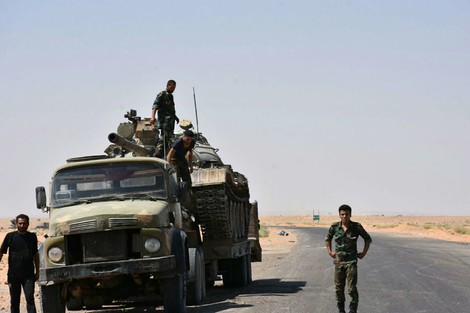Your podcast discovery platform
Curious minds select the most fascinating podcasts from around the world. Discover hand-piqd audio recommendations on your favorite topics.

piqer for: Globalization and politics Global finds
Neil Hauer is an independent analyst focused on Syria, Russia, and the Caucasus. Based in Tbilisi, Georgia, he served as senior intelligence analyst at The SecDev Group, an Ottawa-based geopolitical risk consultancy, for three years. He is presently engaged primarily on Russia’s role in the Syrian conflict.
What Does Assad's Southwestern Offensive Mean For The Future Of Syria?
In the wake of the Syrian regime's reconquest of nearly the entire south-west of the country, it's necessary to look at what exactly this might mean for the future of the conflict. The Syrian opposition has now been shattered and restricted to Idlib province in the north-west, while Iranian and Hezbollah units have access to the line of control with Israel. Michael Dempsey gives a good rundown of the situation at War on the Rocks.
As Dempsey predicted when this article was published 11 days ago, it was not a difficult path for the regime to regain control of the area, which they have nearly accomplished at the time of writing. The refugee flows from this offensive have been some of the largest in the entire seven-year war, with over 300,000 displaced already as of July 9. The additional pressure on Jordan has been enormous, even as the prospect of a reopened border crossing promises much-needed revenue for the Syrian government.
The most dire prospect is the emboldening of the Syrian government as it turns its eyes towards Idlib. Having incurred no tangible costs for ignoring the other ceasefire agreements, Assad now likely believes that the reconquest of the entirety of Idlib is a real possibility. He also probably thinks the same for the Kurdish areas of north-east Syria, which would constitute his next target, seriously challenging the US there.
This article is in line with beliefs I myself have long held: that Assad was always serious when he said he intended to reconquer "every inch of Syria." This will even further challenge the parochial policy of the United States and its steadfast refusal to develop a strategy for Syria beyond the defeat of the Islamic State. It's likely that the US will have to contend with ever-increasing harassment of its forces and those of the allied Kurds from the regime for many years. Whether there is a realistic way to change that at this point, neither myself nor the author can say.
Stay up to date – with a newsletter from your channel on Globalization and politics.
